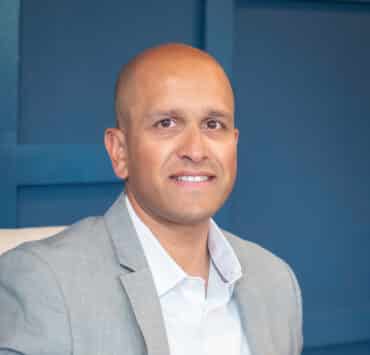For many people, their legacies are composed of notable accomplishments, such as philanthropic gifts or extensive community service. But Cheri Provancha, vice president of supply chain, security, and clinical engineering at Community Health System, offers a different perspective: it’s the people she has the privilege to lead. She combines her propensity towards service with the way she applies her leadership skills, acquired and developed during a long career in the US Army, to the development of her current staff.
“[Even as a child,] I’ve always been about helping someone else,” Provancha says. “If I saw an auto accident, my first instinct was to try to help, not to avoid the situation.” She adds that, if it hadn’t been for the military, she might have pursued a career in law enforcement.
The Provancha family has a long history of military service. “Two of my uncles were veterans—one from World War I, another from World War II—and my dad worked at Rocky Mountain Arsenal during World War II, as well. My older brother served in Korea and another brother went to Vietnam,” she says.
While it might have seemed inevitable for young Provancha to enlist, it wasn’t quite that straightforward.
“I was a ‘late baby;’ by the time I was ready for college, my parents were already collecting social security. I knew that I’d have to find my own way through college,” she recalls. “Military service seemed to be my best choice, but my mother basically forbade me to enlist, mainly because my brother had been wounded during his Vietnam tour.”
“The military invests heavily in the development of its personnel. But I don’t see much of that in the civilian industry—and it’s something that’s very much needed.”
Cheri Provancha
But Provancha attended a Reserve Officers’ Training Corps basic camp at Fort Knox, Kentucky, and emerged with a scholarship for school as well as a regular commission in the Army. “I was finally able to convince mom that it was OK for me to join up,” she says.
She earned a bachelor’s degree in psychology from Colorado State University, a master’s degree in administration and organization from Golden Gate University, and a doctorate of business administration in management from Northcentral University after retirement. Provancha also studied at the US Army War College, University of North Carolina at Chapel Hill, North Carolina State University, and other institutions, where she ultimately attained a master’s in strategic studies.
“Education is built into a military career,” Provancha explains. “Between major assignments, you must go back to school.” She filled her time participating in Command and General Staff College, the Depot and Arsenal Executive Leadership program, Lean Six Sigma Champion certification, a logistics executive development course, and other professional development courses.
Career advancement brings added responsibilities, and one’s success in new roles often depends on learning to shift one’s leadership style. “In the early phases of your career, it’s almost natural to be a micromanager; your staff is relatively small, your responsibilities are more narrowly defined, and your success is more tied to your specific actions,” Provancha reflects. “But as you progress through the ranks, the scope of your mission grows—and you just can’t look after every detail yourself. Your success is tied to what others accomplish through your leadership. That’s why it’s so important to develop a hands-off, direct, and check approach.”
Some officers stall their careers by remaining too deep in the weeds of details, Provancha warns. “You really need to have trust and confidence in the abilities of the people who work for you.”
“In the early phases of your career, it’s almost natural to be a micromanager. . . . Your success is tied to what others accomplish through your leadership. That’s why it’s so important to develop a hands-off, direct, and check approach.”
Cheri Provancha
Her second career began when she joined Kaiser Permanente as area practice leader of supply chain. “Motz Feinberg gave me my shot at a second career in healthcare. Chip Neuman, who was Kaiser’s AFO [area finance officer] for its Modesto facility, was on the hiring panel,” Provancha recalls. “Eventually, Chip moved on to Community Health System and is now its CFO. About a year ago, he called me and asked me to join the team.”
It seemed like a natural move for her. As a maintenance officer in the military, Provancha oversaw the soldiers who fixed trucks and other equipment, which introduced her to the intricacies of the supply chain and logistics such as automated supply accountability, inventory control, transportation, and distribution.
The healthcare industry is similarly reliant on logistics; it’s essential to get the right supplies and equipment to the right people at the right time.
That’s where partnerships with key stakeholders come in. “As industry experts who enable hospitals, health systems, and independent labs to respond to challenges and thrive in today’s unpredictable and ever-changing environment, we are proud of our work with Cheri Provancha,” says Brent Bolton, vice president and general manager of supply chain and lab stewardship at Accumen. “We’ve enjoyed collaborating to help Community Health System minimize supply chain expenses and improve clinical utilization in the lab.”
And though the mechanics of the jobs may be similar, Provancha sees an important divergence between the two cultures. “The military invests heavily in the development of its personnel,” she explains. “But I don’t see much of that in the healthcare or civilian industry outside of mandated clinical certifications—and it’s something that’s very much needed.”
To a large degree, Provancha works to shoulder that responsibility for her team. “I meet with them every month, and part of those sessions focuses on professional development,” she says. “For instance, I assigned them to read The Powell Principles, which covers Colin Powell’s decision-making, strategies, and leadership philosophies, and then have them conduct presentations and discussions about it with our leadership team.”
One of Provancha’s key principles is to establish open communication among everyone on her staff as a means of developing new potential leaders. “I want them to grow, excel, and perform at higher levels,” she says, and encourages a strong sense of trust among her staff by stressing that her blue-collar roots aren’t that much different from theirs.
Just don’t try to pass the buck. “If you’re stuck on a project, don’t try to ‘delegate up.’ Come to me with possible solutions and we’ll discuss them,” Provancha says. “And if you don’t have a solution, be up-front right away; I’ll be ready to coach you through it.”
On the other hand, Provancha can provide a certain amount of cover herself when necessary, such as presenting someone’s plausible (if offbeat) idea to her superiors as her own. “If there’s any fallout or blowback, I’m willing to take it,” she explains. “But if the idea is accepted, I’ll be the first to acknowledge whoever really thought of it.”
Provancha anchors all she does in values and character. She carries an inspirational coin that lists the Army’s core values—loyalty, duty, respect, selfless service, honor, integrity, and personal courage—as a daily reminder of her duties and responsibilities. Because when you combine those words’ initials, the result is LDRSHIP.


